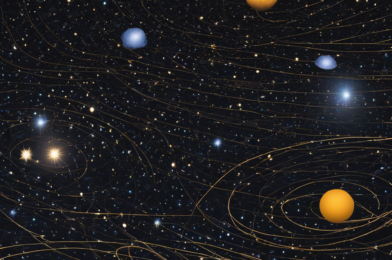The concept of dark energy is one of the most fascinating and intriguing mysteries in modern astronomy. It represents one of the universe’s most fundamental forces and plays a crucial role in shaping its evolution and destiny. Dark energy is often described as a “cosmic mystery,” and understanding it is vital to our comprehension of the universe and its workings. So, what exactly is dark energy, and why is it so significant in the context of the universe’s expansion?
Our universe is vast and ever-expanding, and this expansion is driven by a force known as “dark energy.” It accounts for about 68% of the total mass-energy content of the universe and is believed to act as a sort of “anti-gravity,” pushing the universe to expand faster and faster over time. This effect became noticeable after the universe’s initial period of rapid expansion known as inflation, and it has profound implications for the cosmos’ future. The concept of dark energy was first proposed in the late 1990s, when astronomers studying distant supernovae made a surprising discovery: the universe’s expansion was not slowing down due to gravity, as expected, but was instead accelerating. This acceleration suggested the presence of a previously unknown form of energy with peculiar properties, quite unlike the familiar matter and energy that make up the stars, planets, and even dark matter.
To explain this phenomenon, scientists introduced the idea of dark energy, a pervasive energy field that counteracts the force of gravity on the largest cosmic scales. While its exact nature remains unknown, there are several theories that seek to explain it. The most widely accepted explanation is that dark energy is a property of space itself, a intrinsic component known as “vacuum energy.” According to this theory, even the emptiest stretches of space are not truly empty, but rather teeming with fluctuating energy fields that contribute to the overall energy density of the universe.
Another theory posits that dark energy may be a manifestation of modifications to Einstein’s general theory of relativity, which governs our understanding of gravity and the behavior of cosmic structures. These modifications suggest that on vast scales, gravity may behave differently than what we observe in our immediate surroundings, again giving rise to the observed acceleration of the universe’s expansion. Understanding dark energy is crucial because it holds the key to predicting the universe’s fate.
